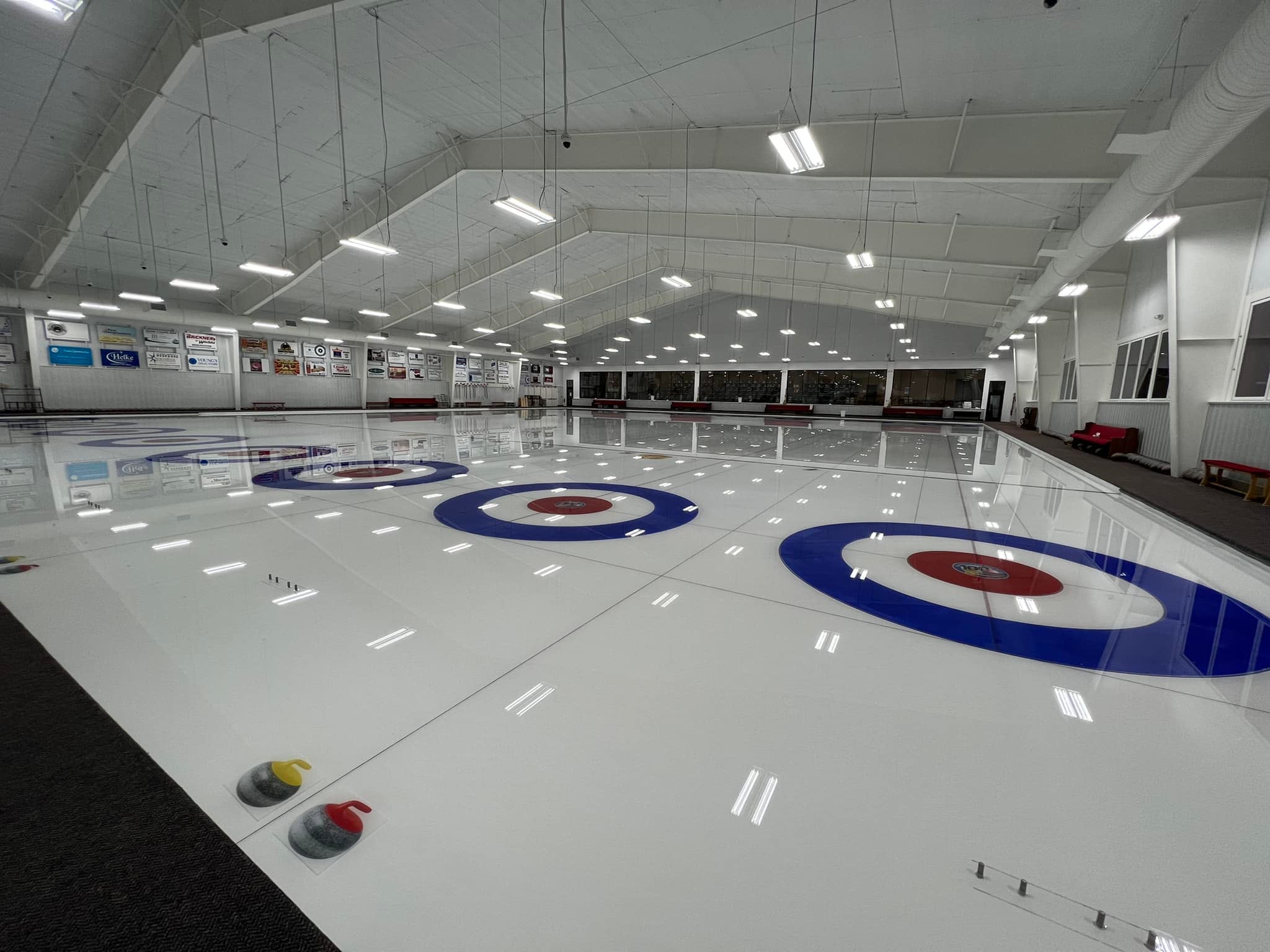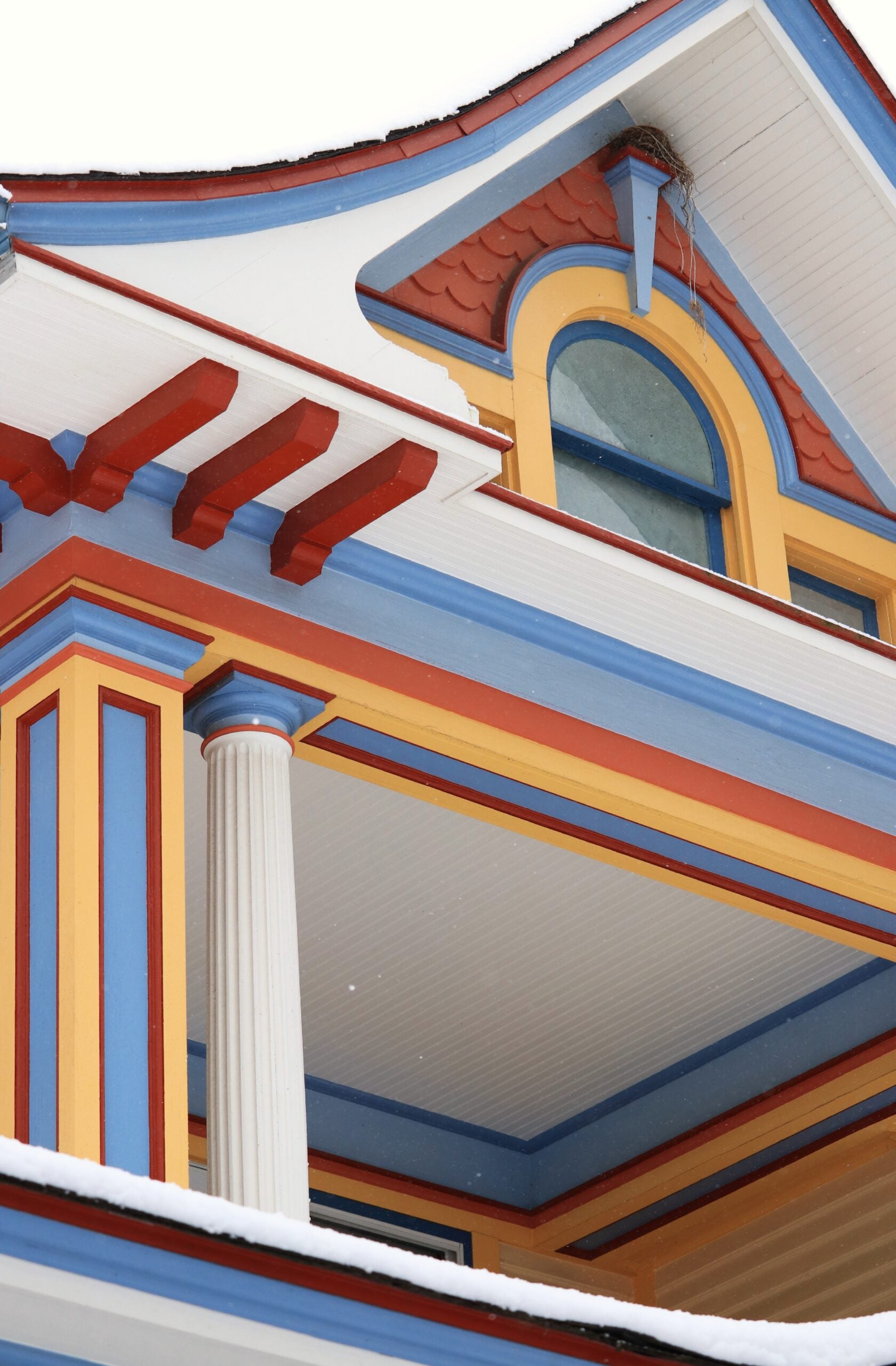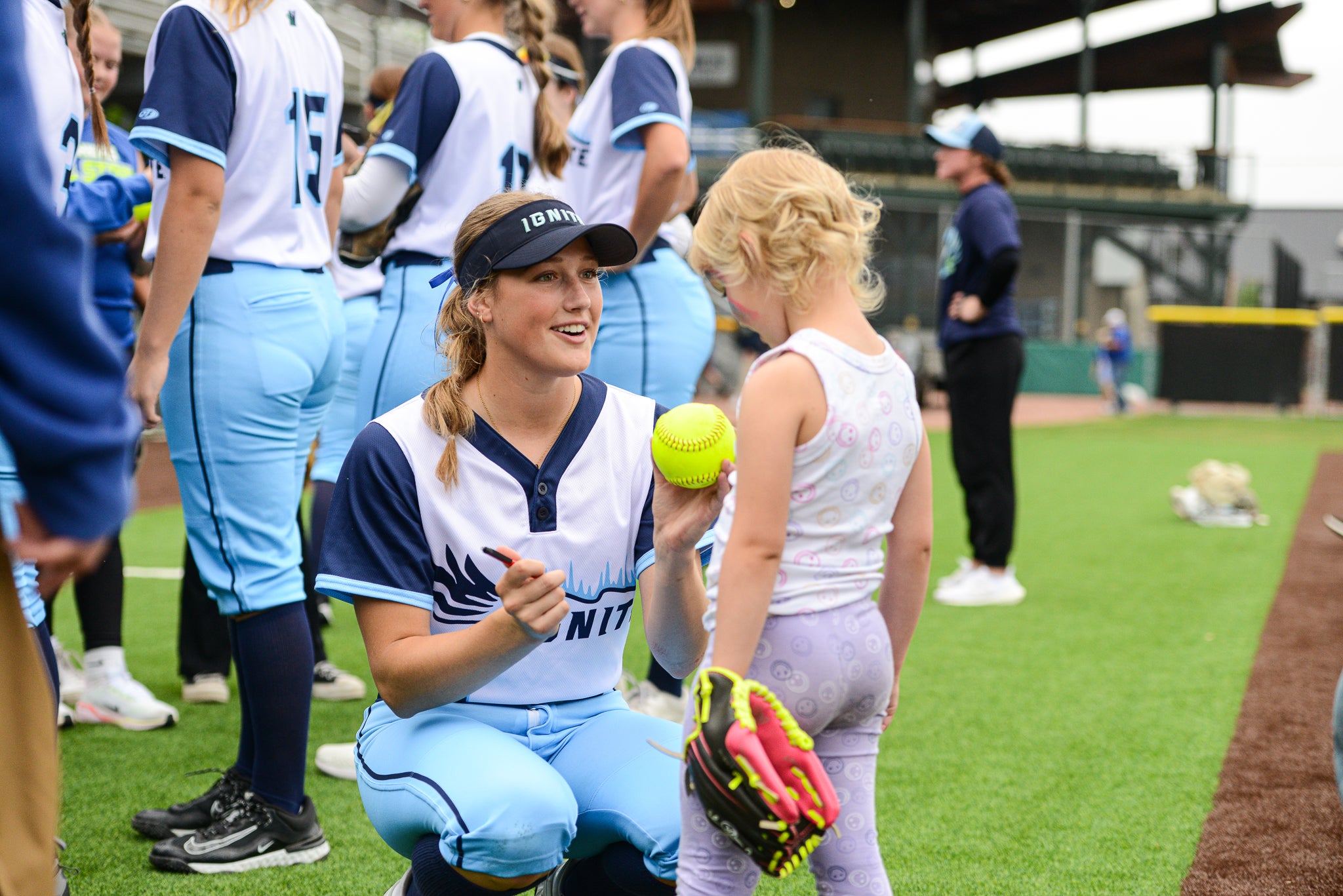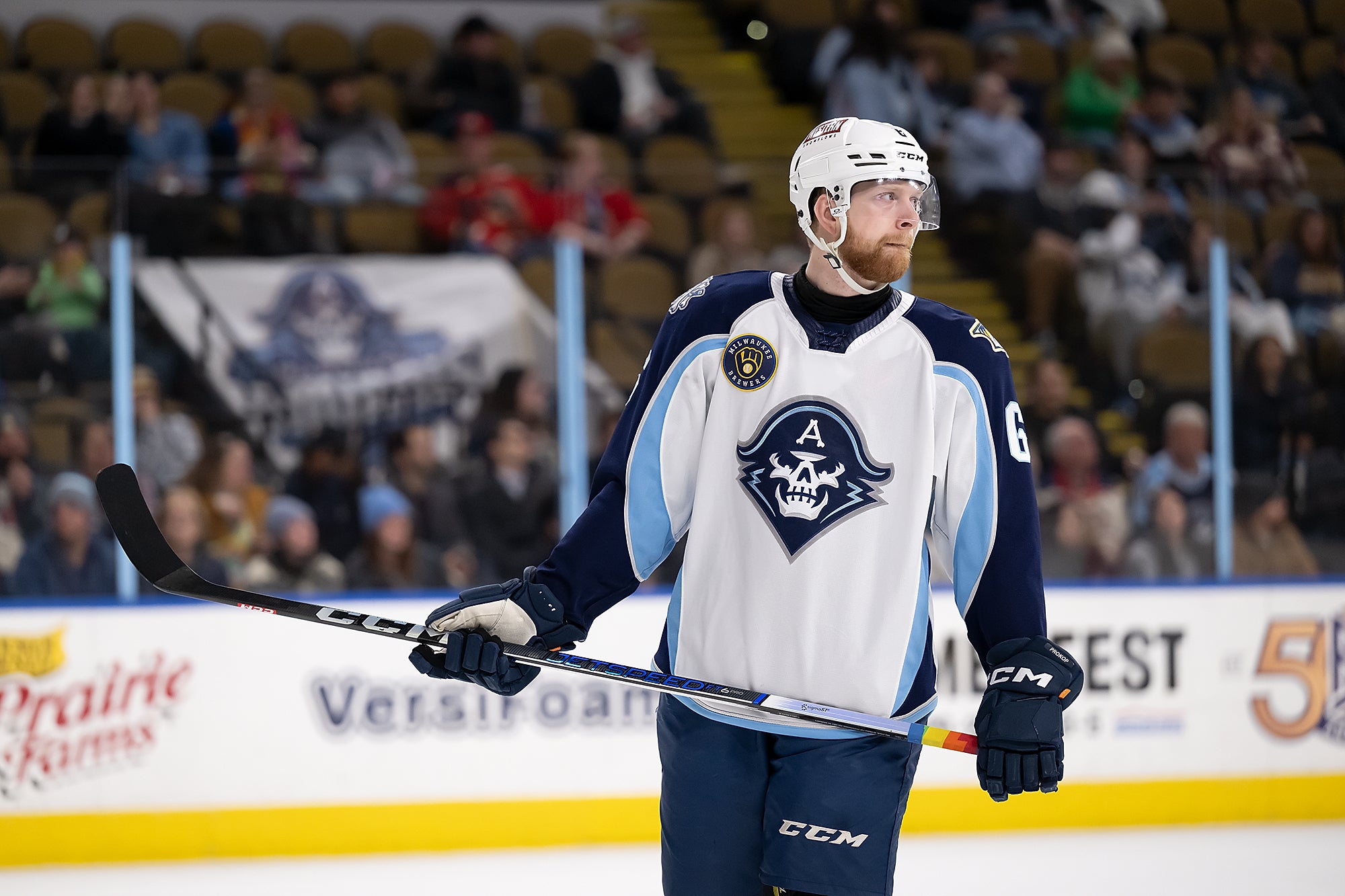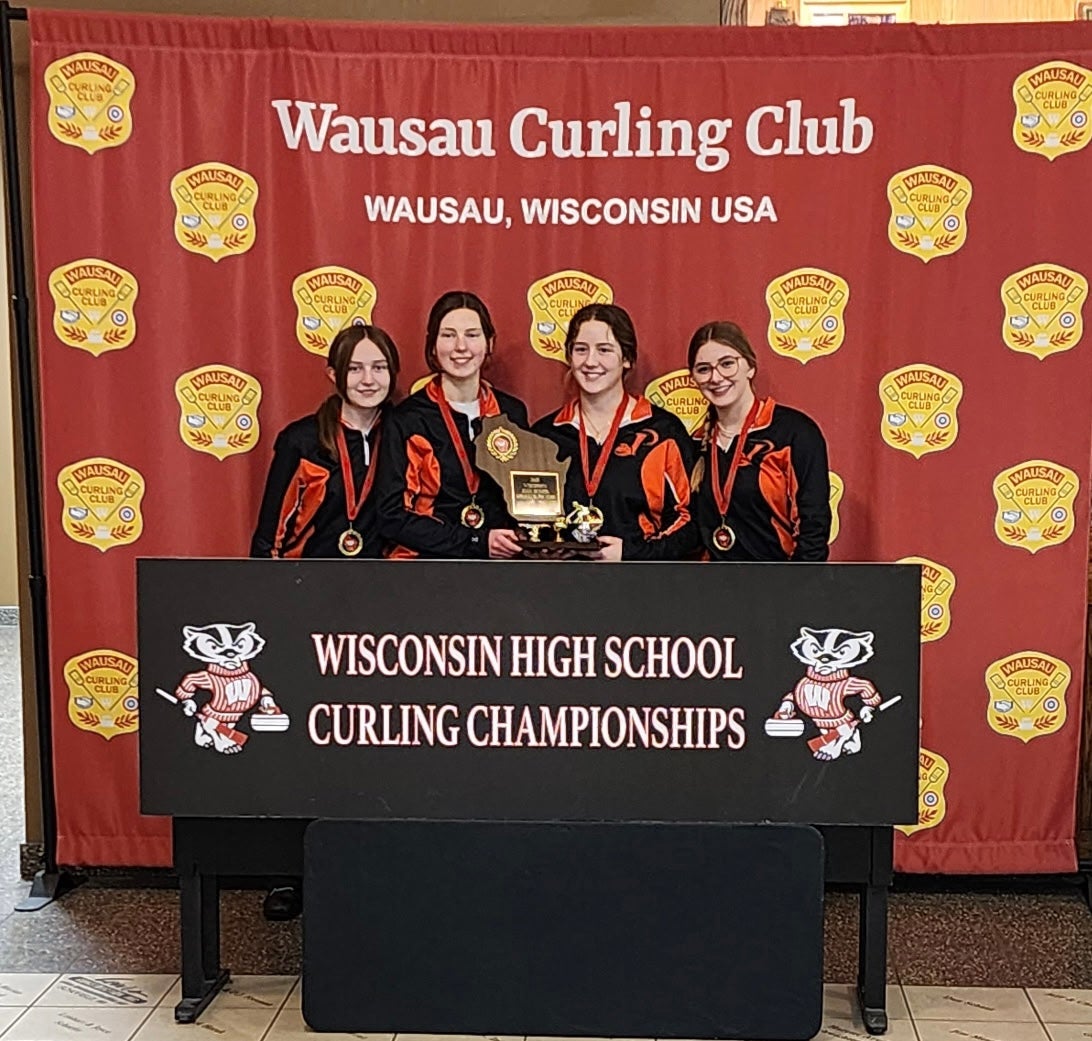Athletes from across the country will travel to central Wisconsin this month as the Wausau Curling Club hosts the U.S. National Arena Curling Championships.
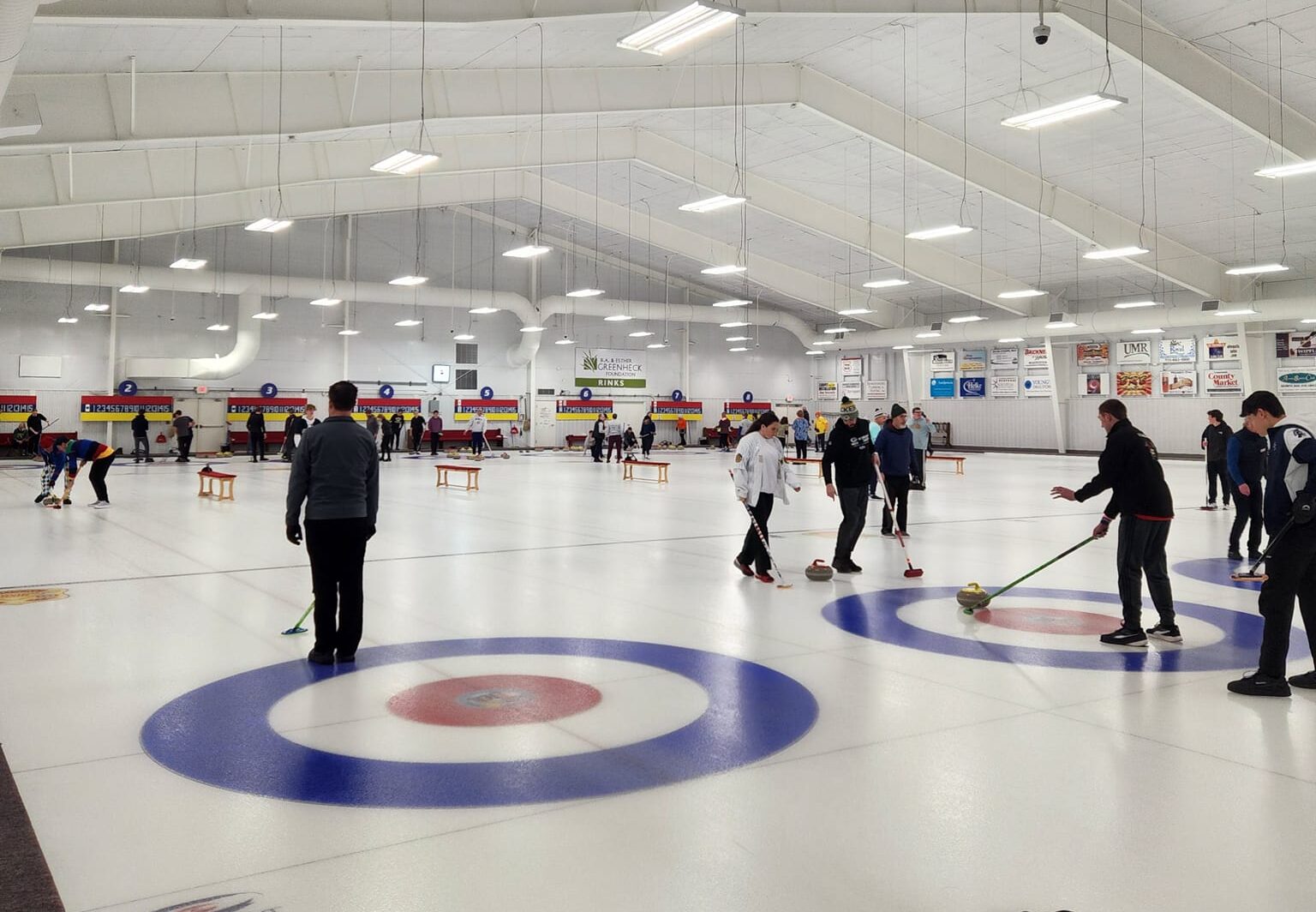
Arena curling differs from traditional curling in that the sport is played on multi-use ice, such as that found in hockey rinks, rather than on ice surfaces dedicated solely to curling.
News with a little more humanity
WPR’s “Wisconsin Today” newsletter keeps you connected to the state you love without feeling overwhelmed. No paywall. No agenda. No corporate filter.
The event, which runs from Oct. 24 to Oct. 27, will bring together top arena curlers for a weekend of intense competition. Longtime curler Kim Susens, who is co-chair of the event, told WPR’s Shereen Siewert on “Morning Edition” that the tournament will serve as both a celebration of curling’s growing popularity and an opportunity to showcase Wausau’s community spirit.
“It’s wonderful for people to see that even a smaller community like Wausau can showcase our area by having events like these,” Susens told WPR’s Shereen Siewert. “We’re thrilled that people will be traveling to the Wausau area during the fall when it’s so beautiful here, and there are still a lot of activities off the ice as well for people to enjoy.”
Wausau’s reputation as a curling hub makes it a natural fit for hosting this event, Susens said. Participants from all over the U.S. will have the chance not only to compete but also to enjoy the region’s vibrant fall scenery. Learn more about the event at this link.
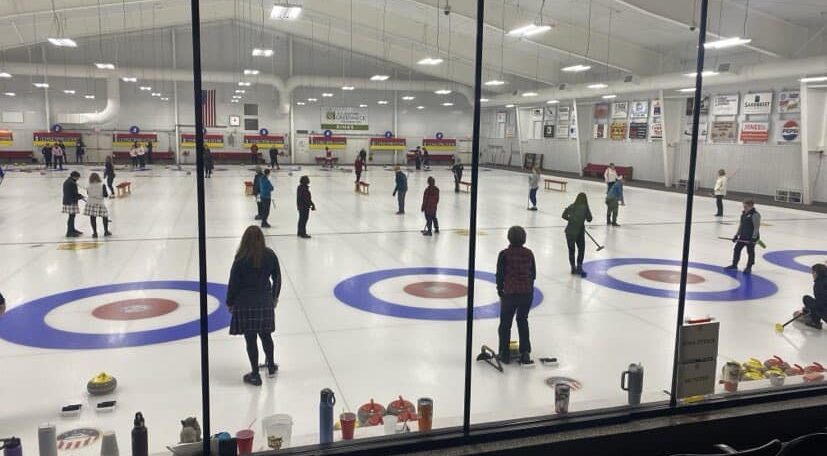
The following transcription was edited for brevity and clarity.
Shereen Siewert: Kim, what is arena curling, and how is it different from regular curling?
Kim Susens: Arena curling is played basically on a hockey rink, which the curlers have to prepare every time they want to curl. That means their rink is never ready until they prepare it. The ice is played on by hockey players and figure skaters, so they start with a fresh Zamboni, then carry the stones onto the ice, prepare the ice sheets and put the lines down. They’re some of the hardest working curlers around.
SS: Are there any notable teams or competitors you’re really watching for at this year’s event?
KS: The defending champions on the men’s side are coming from the Dallas area, and the defending champions on the women’s side are coming from Houston, so they are both Texas teams. The women’s team has actually been here before. The last time we hosted club nationals, their team represented.
SS: Curling tends to fly under the radar compared to other sports. How does an event like this help grow its popularity?
KS: We get a great deal of exposure during an Olympic year because curling is one of those fun, easy-to-watch sports and there’s a lot of color. The athletes are very flamboyant, I might say. This is a much more tamed-down version of that, but by us hosting these national events, we can bring curling to the forefront in our community and in our state and just show people that this is really a sport for anyone. It’s not just elite players. It’s for people of any age. We have curlers that are in our facility every week and they’re in their 80s, curling happily every day.
SS: What do you suggest to help spectators new to curling really enjoy this event?
KS: I would have them go to YouTube and watch one of the Olympic matches or any streamed game where there are commentators because they’ll explain a bit of the strategy. Commentators can tell people what the curlers are doing and perhaps what they’re thinking, and how they will manage to score points during the game.
SS: You’ve been curling for a long time. What drew you to this sport in the beginning and what sparked your passion for it?
KS: It’s kind of a funny story. The curling center used to be right next to Marathon Park hockey rinks and my husband was a high school hockey coach for many, many years. One year, an Olympic year, a bunch of the parents from that particular group were thinking about what they should do after their kids graduated from high school, and they talked about trying that “curling thing.” So, they went next door, tried it out in a in a three-week league in the spring and decided that it was a really fun thing to do. They got a bunch of other parents together and we all went out and learned to curl. That grew into a league of our own that we played on Sunday nights. A number of those parents, me included, are still curling.
It’s the kind of sport that you can love at any age. You can compete at any age, and it’s very social. You sit down with the team that you play against after you’re done playing and socialize, maybe share an adult beverage, and get to know a whole different group of people in a whole different way.
If you have an idea about something in central Wisconsin you think we should talk about on “Morning Edition,” send it to us at central@wpr.org.

